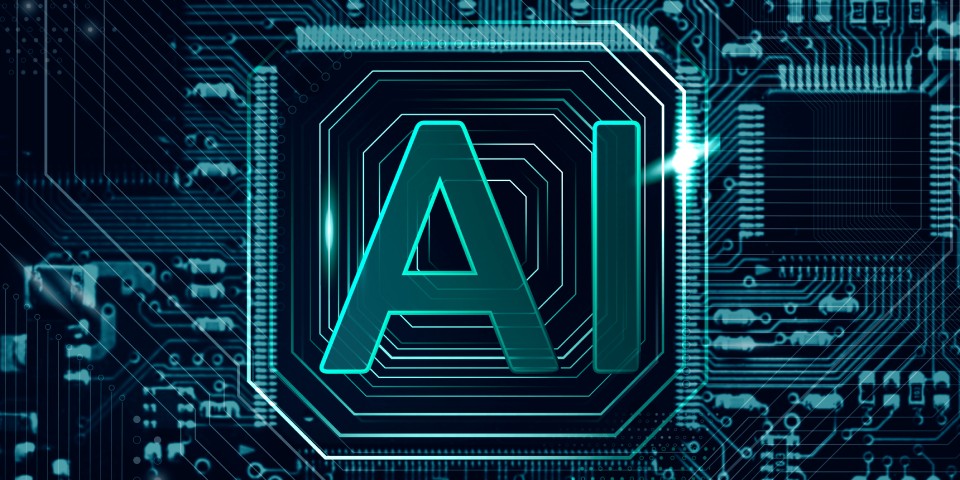The Evolution of AI Open Source: Trends, Challenges, and Opportunities
Artificial intelligence (AI) is at the forefront of technological advancement, reshaping industries and revolutionizing the way we interact with technology. The concept of open-source development is central to this rapid evolution, which has played a pivotal role in democratizing access to AI tools and fostering innovation. In this extended exploration, we delve deeper into the journey of AI open source, examining the trends, challenges, and vast opportunities it presents for the future of AI development and its impact on society.
Table of Contents
Understanding AI Open Source
AI open source encompasses developing and distributing AI algorithms, frameworks, and tools under licenses that permit users to freely use, modify, and distribute the software’s source code. This collaborative approach encourages transparency, fosters innovation, and accelerates the adoption of AI technologies across diverse domains. Notable examples of AI open-source projects include TensorFlow, PyTorch, and sci-kit-learn, which have become foundational pillars of AI research and application development.

Trends Shaping AI Open Source
Rise of Frameworks: The landscape of AI open source is characterized by a proliferation of frameworks, each offering unique features and capabilities. TensorFlow, developed by Google Brain, emerged as a dominant force due to its scalability and extensive community support. In contrast, PyTorch, championed by Facebook AI Research, gained popularity for its intuitive interface and dynamic computational graph. This competition has fueled innovation, resulting in continuous advancements and the development of specialized frameworks tailored to specific use cases.
Community Collaboration: At the heart of AI open source is the vibrant community of developers, researchers, and enthusiasts who collaborate on projects, share insights, and contribute to advancing AI technology. Platforms like GitHub serve as hubs for collaboration, enabling developers worldwide to collaborate on projects seamlessly. The collective intelligence of these communities drives rapid innovation, accelerates the development cycle, and fosters a culture of knowledge sharing within the AI ecosystem.
Focus on Accessibility: Efforts to democratize AI have led to a renewed focus on accessibility, making AI tools and resources available to a broader audience. Projects such as TensorFlow.js and TensorFlow Lite aim to bring AI capabilities to web browsers and mobile devices, enabling developers to deploy AI models directly on edge devices. This trend aligns to empower developers and organizations to integrate AI into various applications and platforms, regardless of their technical expertise or resources.
Interdisciplinary Integration: open source artificial intelligence has transcended traditional boundaries, integrating with other disciplines such as healthcare, finance, and cybersecurity. OpenAI’s GPT models, for instance, have been leveraged for natural language processing tasks across diverse domains, including medical diagnosis, financial forecasting, and content generation. This interdisciplinary approach has led to the development of specialized tools and models tailored to specific industry needs, driving innovation and unlocking new opportunities for AI applications.

Challenges in AI Open Source Development
Complexity and Scalability: As AI projects grow in complexity and scale, managing and maintaining open-source software becomes increasingly challenging. Developers must navigate issues such as version compatibility, dependency management, and performance optimization to ensure the stability and scalability of AI frameworks and tools. Additionally, the rapid pace of innovation in AI necessitates continuous updates and improvements, further adding to the complexity of software maintenance and development.
Intellectual Property Concerns: Balancing the principles of openness with intellectual property rights poses legal and ethical challenges in AI open source development. Developers must navigate licensing agreements, copyright issues, and patent restrictions to ensure compliance and protect their contributions. Moreover, the growing prevalence of proprietary AI technologies raises concerns about data privacy, algorithmic transparency, and the equitable distribution of AI benefits.
Quality Control and Maintenance: With a vast array of open-source projects available, ensuring the quality and maintenance of software becomes paramount. Issues such as code duplication, inadequate documentation, and lack of ongoing support can hinder adoption and usability, undermining the credibility and reliability of AI open source projects. Addressing these challenges requires dedicated efforts to improve code quality, enhance documentation, and provide robust support mechanisms for developers and users alike.
Diversity and Inclusivity: Despite efforts to foster inclusive communities, diversity remains a challenge in open source artificial intelligence development. Gender and racial disparities persist within the AI community, with women and underrepresented minorities often underrepresented in technical roles and leadership positions. Addressing these disparities requires proactive measures to promote diversity, equity, and inclusion, including targeted recruitment efforts, mentorship programs, and diversity initiatives within AI organizations and communities.

Opportunities in AI Open Source
Innovation Acceleration: AI open source accelerates innovation by enabling collaboration, knowledge sharing, and collective problem-solving among developers worldwide. By leveraging the collective intelligence of diverse communities, developers can build upon existing tools and frameworks, leading to rapid advancements in AI technology. The open exchange of ideas fosters creativity, encourages experimentation, and drives continuous improvement, pushing the boundaries of what is possible in AI research and development.
Skill Development and Education: Open source projects serve as valuable resources for skill development and education in AI, providing hands-on experience and practical learning opportunities for students, researchers, and professionals alike. Contributors to open-source projects gain exposure to real-world challenges, collaborate with experts in the field, and hone their technical skills through meaningful contributions. Moreover, the accessibility of open source resources lowers barriers to entry into the field of AI, democratizing access to knowledge and expertise for aspiring developers and learners worldwide.
Commercialization and Entrepreneurship: AI open source presents significant opportunities for entrepreneurship and commercialization, enabling startups and innovators to leverage existing tools and frameworks to develop innovative AI solutions. By building upon open source technologies, startups can accelerate product development, reduce time-to-market, and lower barriers to entry in the competitive AI market. Furthermore, open-source projects provide a platform for collaboration and partnership, facilitating the exchange of ideas, resources, and expertise among entrepreneurs, investors, and industry stakeholders.
Social Impact and Ethical AI: Open source development promotes transparency, accountability, and ethical considerations in AI systems, fostering the development of technologies that align with societal values and principles. Projects focused on ethical AI, fairness, bias mitigation, and algorithmic transparency contribute to building AI systems that are more equitable, inclusive, and beneficial for all. By promoting ethical practices and responsible innovation, AI open source empowers developers and organizations to create AI solutions that address pressing social challenges, promote human welfare, and advance the greater good.
Conclusion
The evolution of AI open source has transformed the landscape of artificial intelligence, driving innovation, collaboration, and accessibility on a global scale. Despite challenges such as complexity, intellectual property concerns, and diversity issues, the opportunities presented by AI open source are vast and far-reaching. By embracing collaboration, fostering inclusivity, and addressing key challenges, the AI community can harness the full potential of open-source development to advance the frontier of AI technology and create a positive societal impact.
Through continuous evolution and collective effort, AI open source will continue to shape the future of artificial intelligence, empowering individuals and organizations to create, innovate, and solve complex problems through collaborative development and open exchange of ideas. In this journey of exploration and innovation, the principles of openness, transparency, and inclusivity will remain fundamental, guiding the AI community toward a future where AI technologies are accessible, ethical, and beneficial for all. Together, we can build a future where AI serves as a force for good, driving positive change and enhancing the human experience in ways we have yet to imagine.

